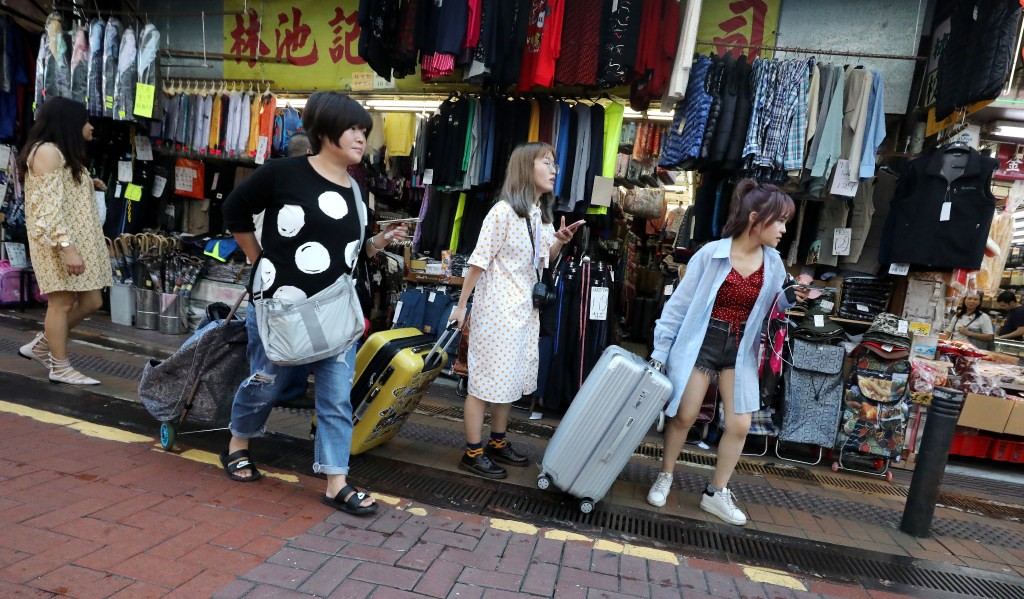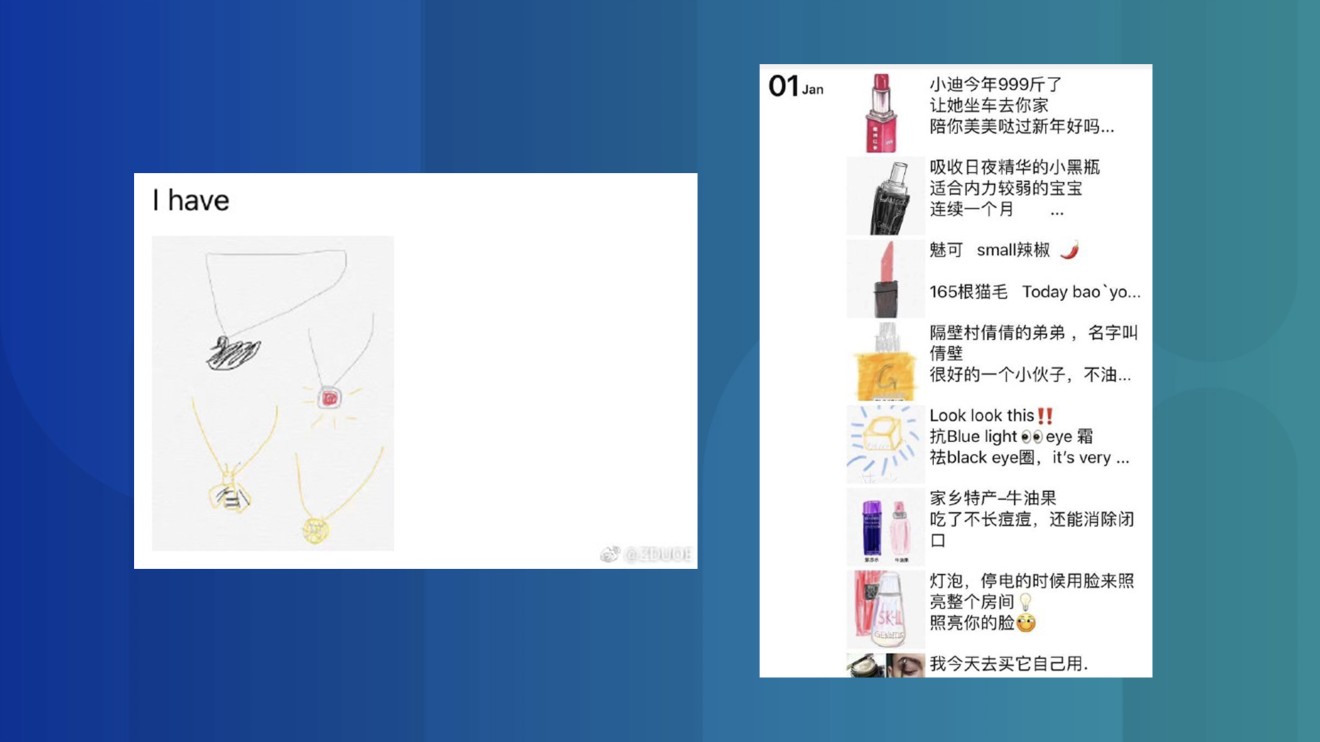
You might see fewer Chinese shoppers with suitcases thanks to a new ecommerce law
Chinese shopping agents use WeChat to take orders, then fly abroad to stuff their suitcases with makeup and baby milk formula
It’s a common sight in Asia and in some other cities around the world: Chinese shoppers packing baby milk formula or makeup products into their suitcases. But it’s a sight you might start seeing a little less from now on.
(Abacus is a unit of the South China Morning Post, which is owned by Alibaba.)

The new law will fine both merchants and platforms for illegal behavior. It’s not yet clear how each platform will enforce the new law, but we’re already seeing how sellers are trying to stay out of trouble.
On social media, people are sharing pictures of daigou posts after the new law took effect. Instead of posting real pictures of products, some daigous have been posting sketchy drawings with seemingly random descriptions.
“Qianqian from our neighbor village has a brother named Qianbi,” says one daigou’s description for Clinique moisturizer, using Clinique’s Chinese name -- Qianbi. “Good lad, not oily. Weighs 125.”

We reached out to Tencent about what they’ll do about daigous on their platforms under the new law, and have yet to hear back. In November, Alibaba said they’ll notify them about Taobao’s new policy once the government releases more detailed regulations.
But this is only one part of changes from the new law. Among others, it also wants to crack down on fake reviews and counterfeit products from small merchants.
Some of the biggest users of live streaming in China are not teenagers, they’re farmers
For more insights into China tech, sign up for our tech newsletters, subscribe to our Inside China Tech podcast, and download the comprehensive 2019 China Internet Report. Also roam China Tech City, an award-winning interactive digital map at our sister site Abacus.
For more insights into China tech, sign up for our tech newsletters, subscribe to our Inside China Tech podcast, and download the comprehensive 2019 China Internet Report. Also roam China Tech City, an award-winning interactive digital map at our sister site Abacus.

